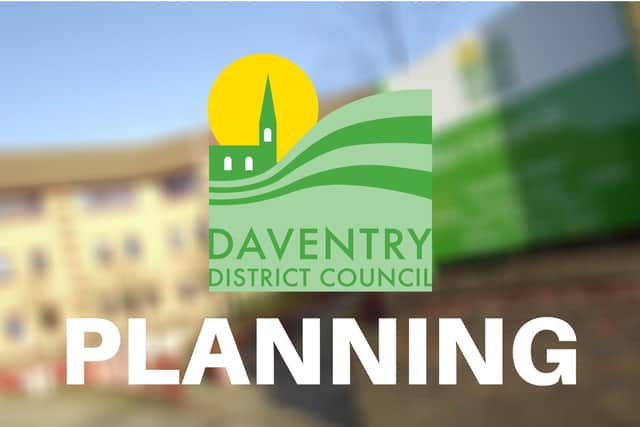Daventry District Council responds to controversial planning proposals from the Government
and live on Freeview channel 276
A white paper entitled ‘Planning for the Future’ was produced by the Government last month and put out to consultation with several new proposals.
Controversial new ideas include splitting land into three categories – ‘growth’ areas suitable for substantial development; ‘renewal’ areas suitable for development; and areas that are ‘protected’.
Advertisement
Advertisement
Areas identified as ‘growth’ areas for substantial development could also be automatically granted outline planning permission for the principle of development – effectively negating the need for a debate on whether the principle of a specific type of development should be allowed.


There are also plans to introduce a new set rate ‘community levy’ for developer contributions towards infrastructure, with this replacing the current section 106 agreements that are currently negotiated between councils and developers.
Last week saw full council agree for council leader Richard Auger to write to the Minister of State for Housing & Planning and to local MP Chris Heaton-Harris to ‘raise concerns’. At this week’s strategy meeting (October 15), the council’s formal response to the Government consultation was agreed.
The formal response sees detailed comments to 26 different questions from the Government. One response states: “Whilst the desire to speed up and simplify (where sensible) the plan-making system is laudable, the White Paper does not provide a convincing case that its proposals would achieve that outcome.
Advertisement
Advertisement
“The paper itself paints an overly simplistic view of the planning system, and it is very difficult to see how the proposed new regime would actually work in practise.”
Approving the formal response during the meeting, Councillor Alan Chantler said: “Some might say that the Government is proposing to tear up the planning rules, throw them away and allow developers to do what they like where they like. Of course, that’s not the aim, but they are going towards that trend in some aspects of what they want to do.
“Some of the proposals are very radical, they want to change the emphasis very much from planning applications being made individually to the local planning authority drawing up a local plan saying this is where you can and cannot develop, and they think this might move a blockage that means it takes too long to get planning permission. Not everyone will agree with that, but that’s the view they have expressed.”
Councillor Steve Osborne, chairman of the planning committee, said he ‘couldn’t believe’ the Government was heading in the direction it was.
Advertisement
Advertisement
He said: “I looked through it and I could use one word to describe a lot of it! We’ve been heading this way for years now. The Government believes that the system of local government planning, and the involvement of councillors and local people putting their chance forward, is why they think they’re not getting enough houses built. They don’t want that. But local government thinks that it’s developers that are stockpiling the planning permissions.”
Councillor Stephen Dabbs said that the responses from the authority were mostly very good, but said that a response asking for the council’s priorities on sustainability was ‘woolly’ and had neglected to mention the environment. He said: “We’ve declared a climate emergency, we need to be doing things towards that now. In the question of whether we have priorities, I would have thought that building at carbon zero and that new builds run at zero carbon would be important.”
But council leader Richard Auger urged councillors to write to the Government in their own individual capacities to highlight any potential areas they were particularly concerned about. He said: “For those who think some answers can be beefed up, you have your own mandate and can write to the minister independently from this council. I’m satisfied that overall this is a good response.”
The detailed response in full can be read on the council’s website.